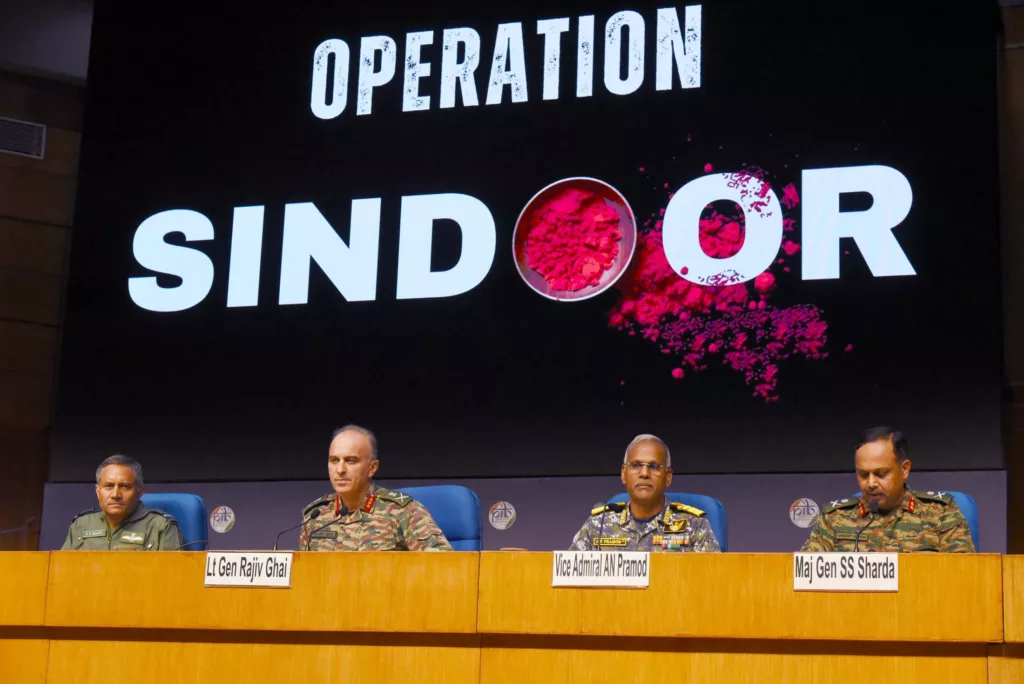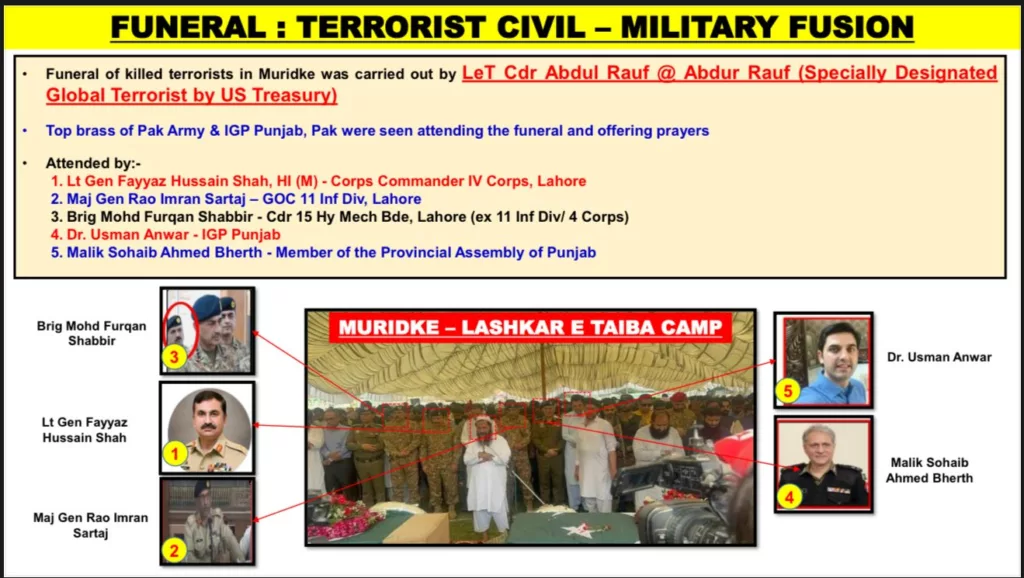In a major counter-terror operation, the Indian Armed Forces carried out precise strikes on May 7, targeting nine terror camps in Pakistan and Pakistan-occupied Kashmir (PoK). The strikes were in retaliation for the brutal Pahalgam terror attack that left 26 people dead on April 22.

According to Indian authorities, more than 100 terrorists were neutralised during Operation Sindoor. The targeted locations included Bahawalpur, Muridke, Kotli, Bhimber, and other known terror hideouts. Bahawalpur is known as the stronghold of Jaish-e-Mohammed (JeM), while Muridke houses the headquarters of Lashkar-e-Taiba (LeT).
After the strikes, videos and images surfaced on social media showing funerals of the slain terrorists, where several high-ranking Pakistani Army officers and police officials were seen attending. The Indian Armed Forces released the names of key attendees, which included:
Lt. Gen. Fayyaz Hussain Shah, Commander of IV Corps, Lahore
Maj. Gen. Rao Imran Sartaj, 11th Infantry Division, Lahore
Brig. Mohammad Furqan Shabbir
Dr. Usman Anwar, IG Punjab Police
Malik Sohaib Ahmed Bherth, Member of Provincial Assembly, Punjab

India expressed strong concern over the presence of such officials at the funerals, accusing Pakistan of offering “state funerals” to known terrorists.
In one video from Muridke, Pakistan Army personnel were seen carrying the coffins of three LeT-linked men — Qari Abdul Malik, Khalid, and Mudassir — with Hafiz Abdul Rauf, a US-designated global terrorist, leading the prayers. Members of the banned Jamaat-ud-Dawah (JuD) were also present.
India has accused Pakistan of double standards and harbouring terror groups under the guise of civilian institutions. The government said the latest incident clearly exposes Pakistan’s support for terrorism, despite Islamabad’s repeated denials.
Operation Sindoor’s precision targeting has sent a strong message, and India says it will continue to act firmly against any terror threats emanating from across the border.


